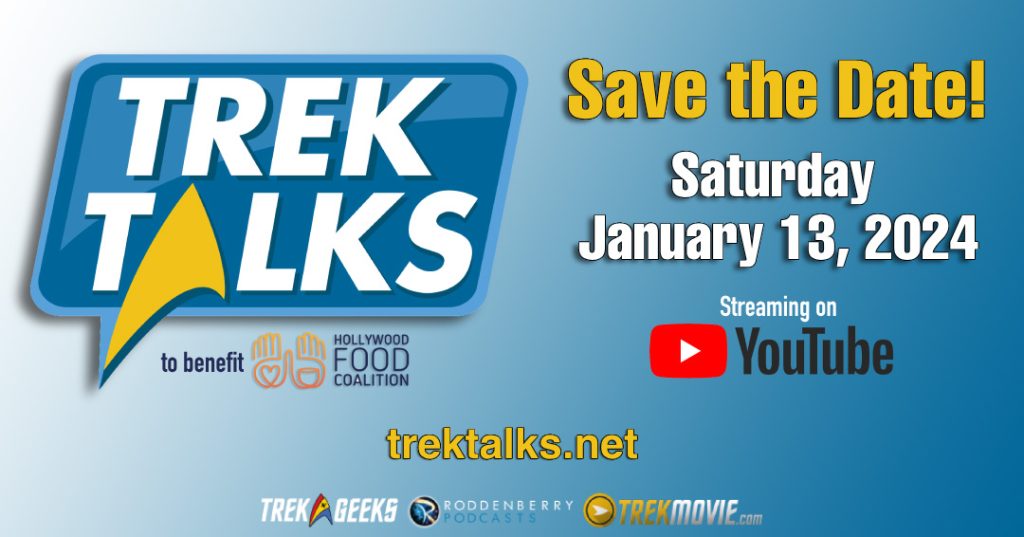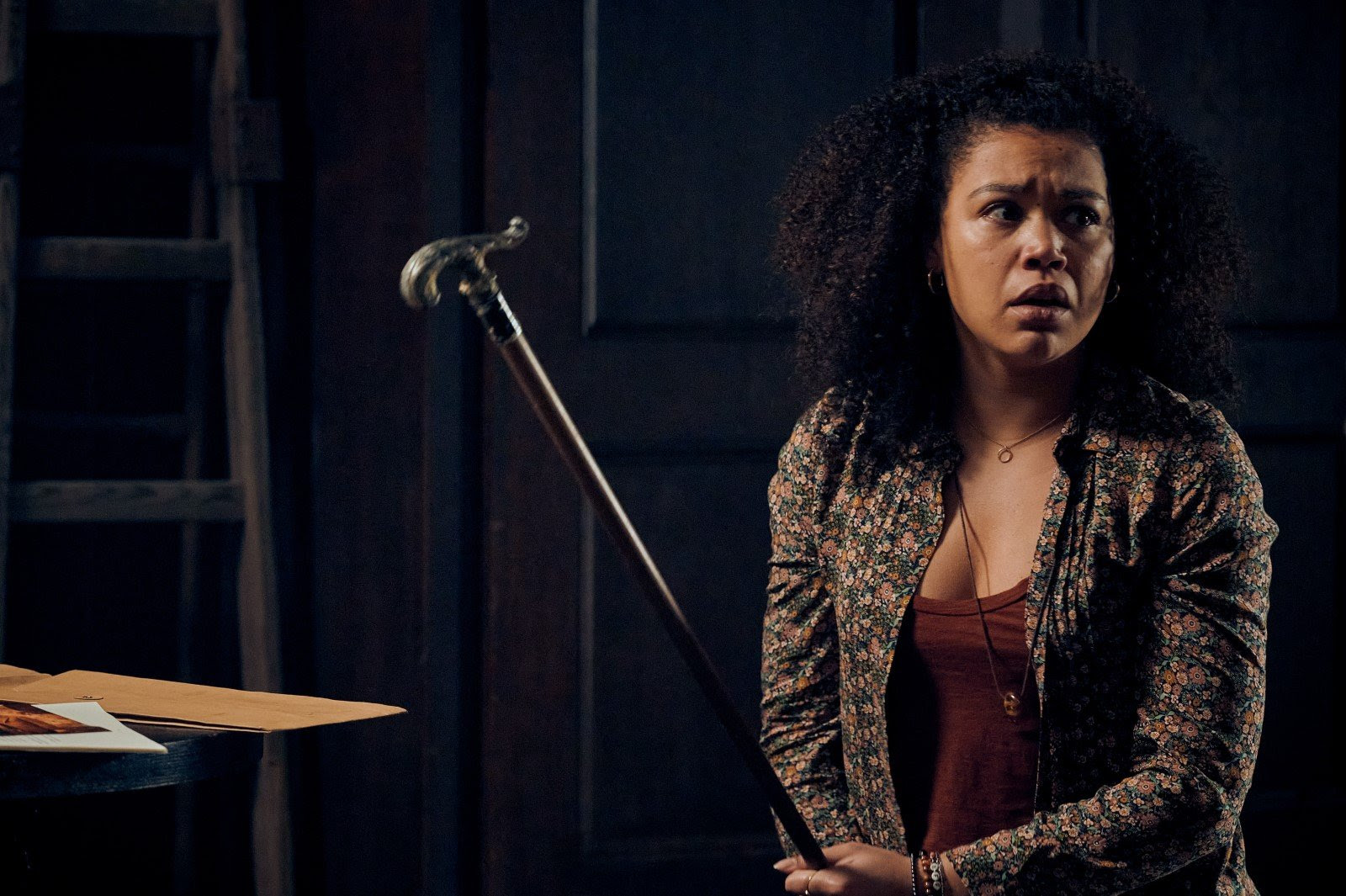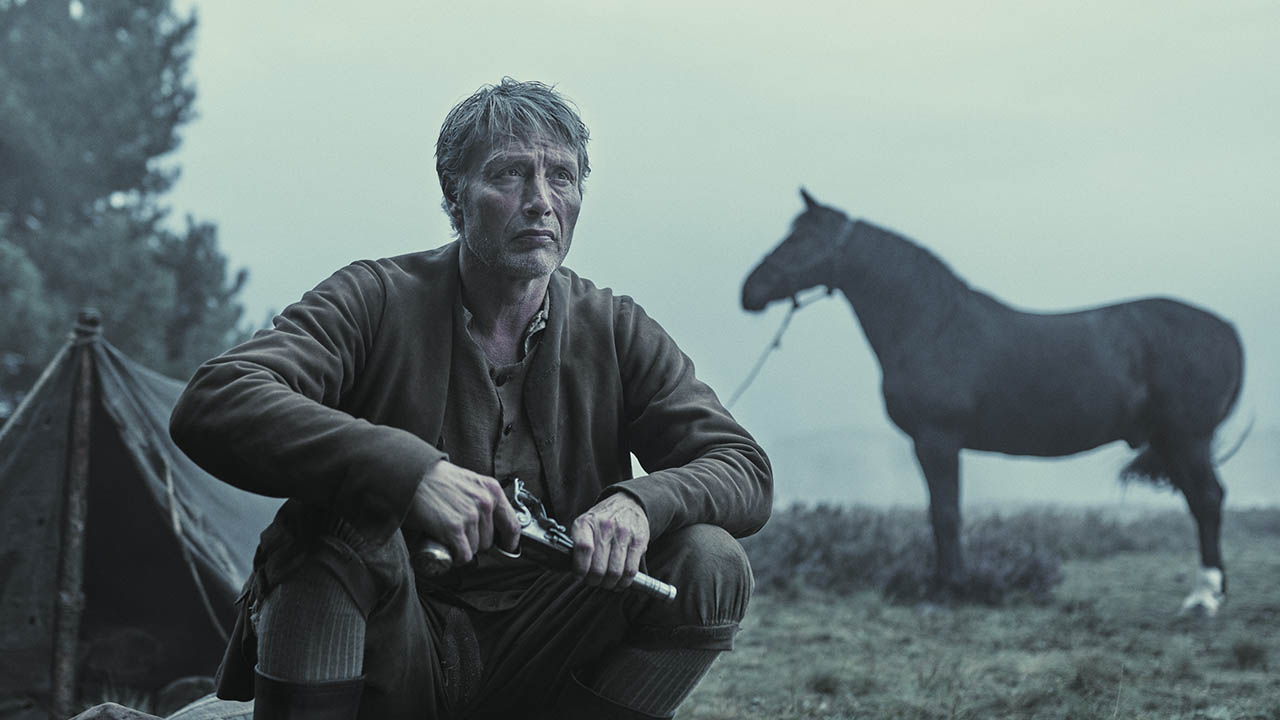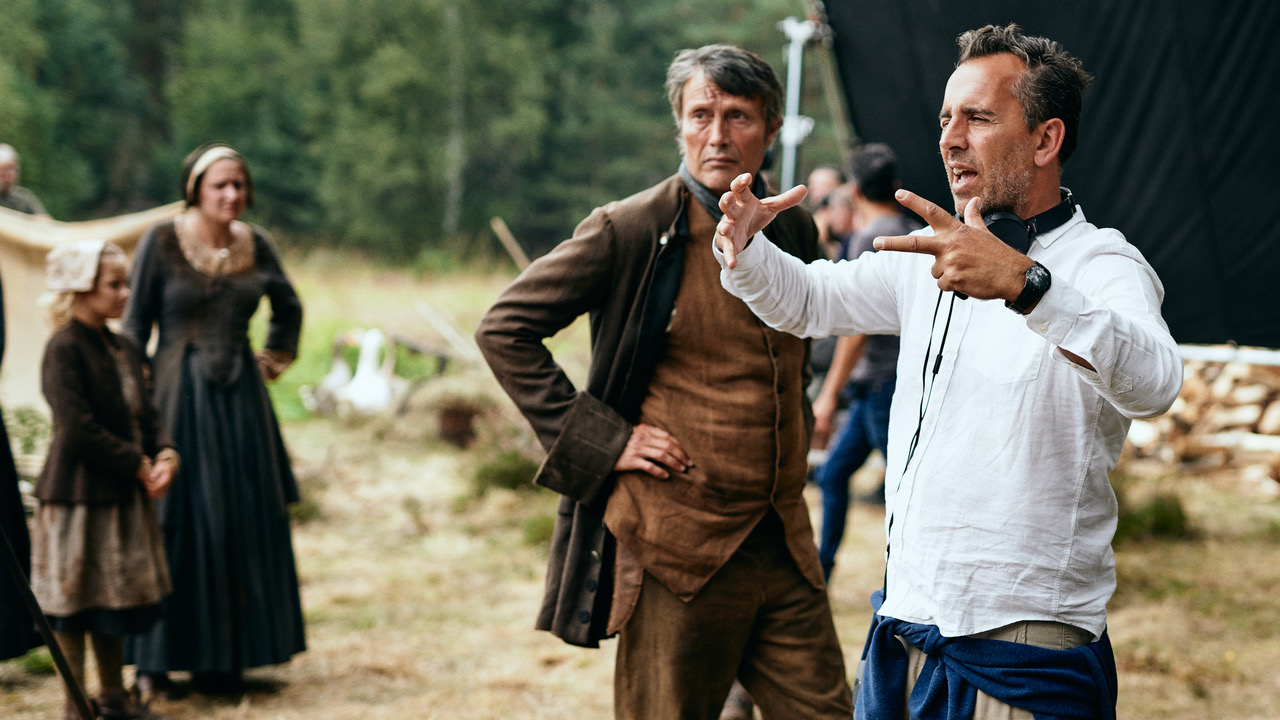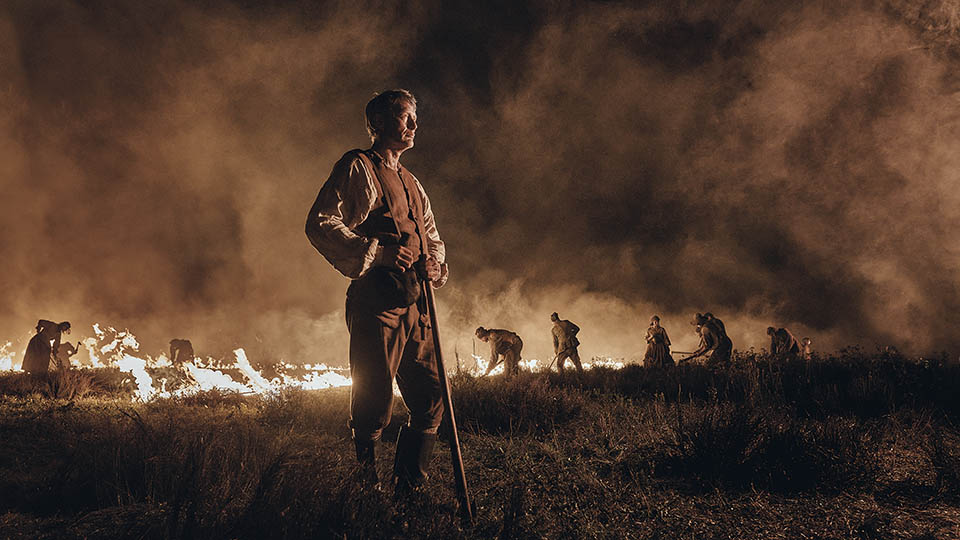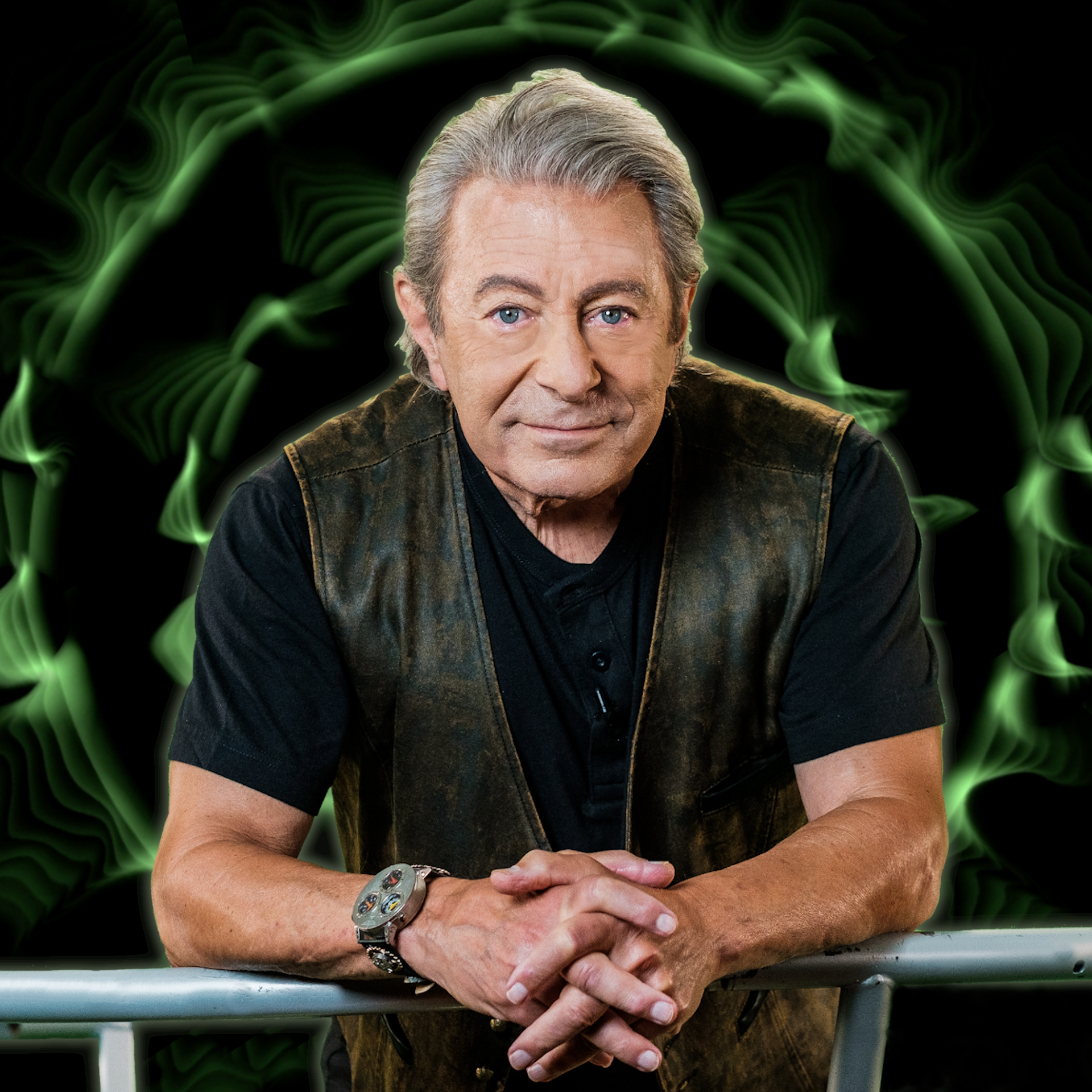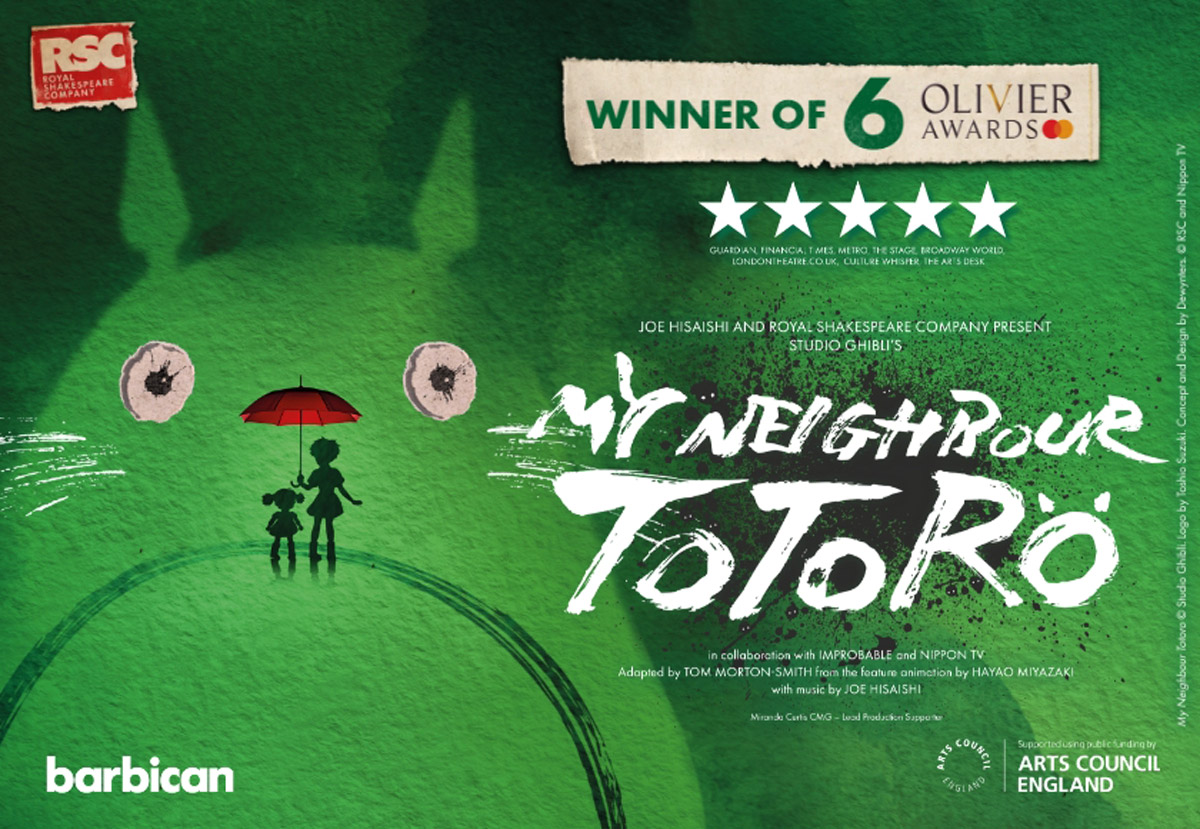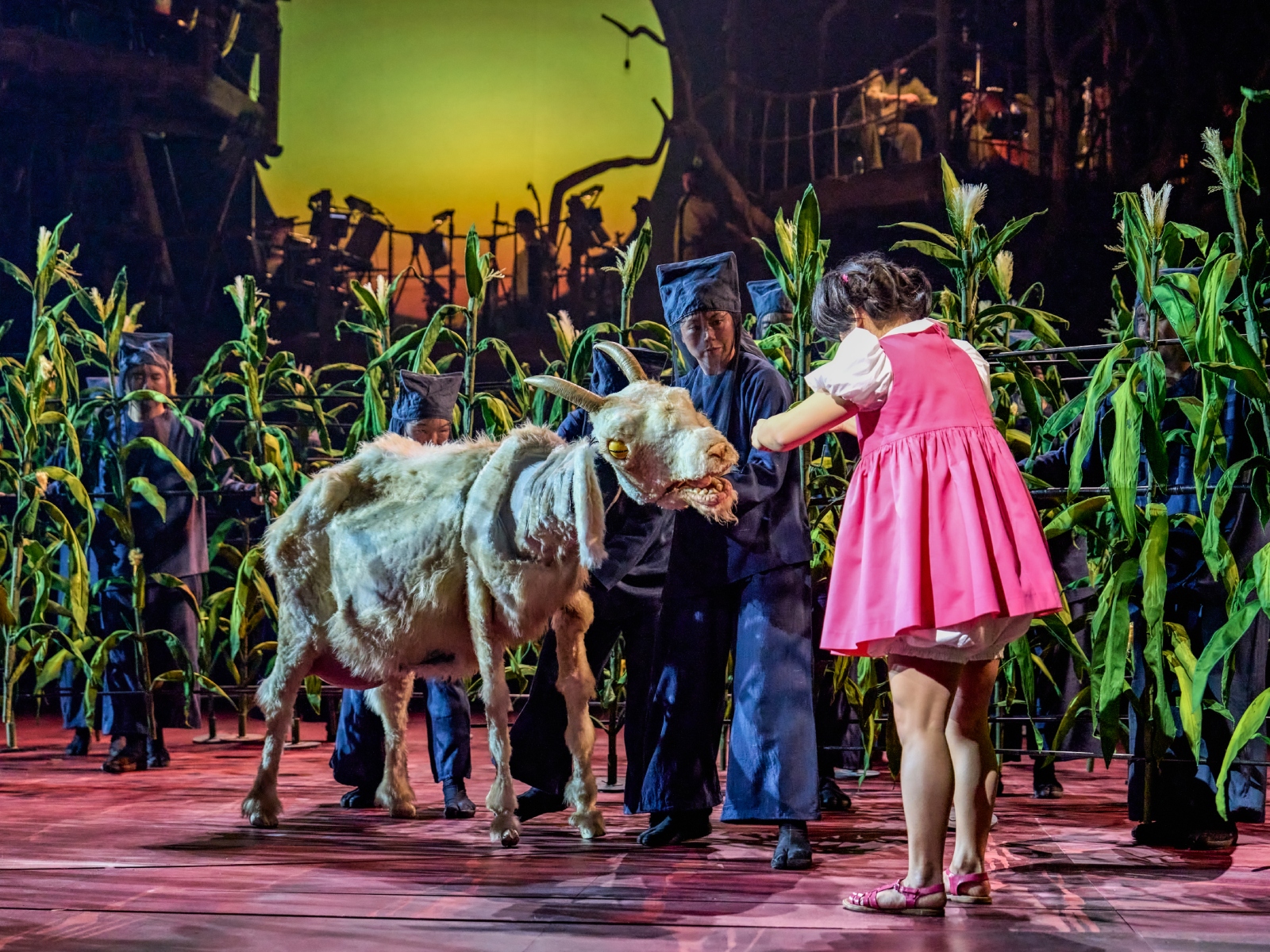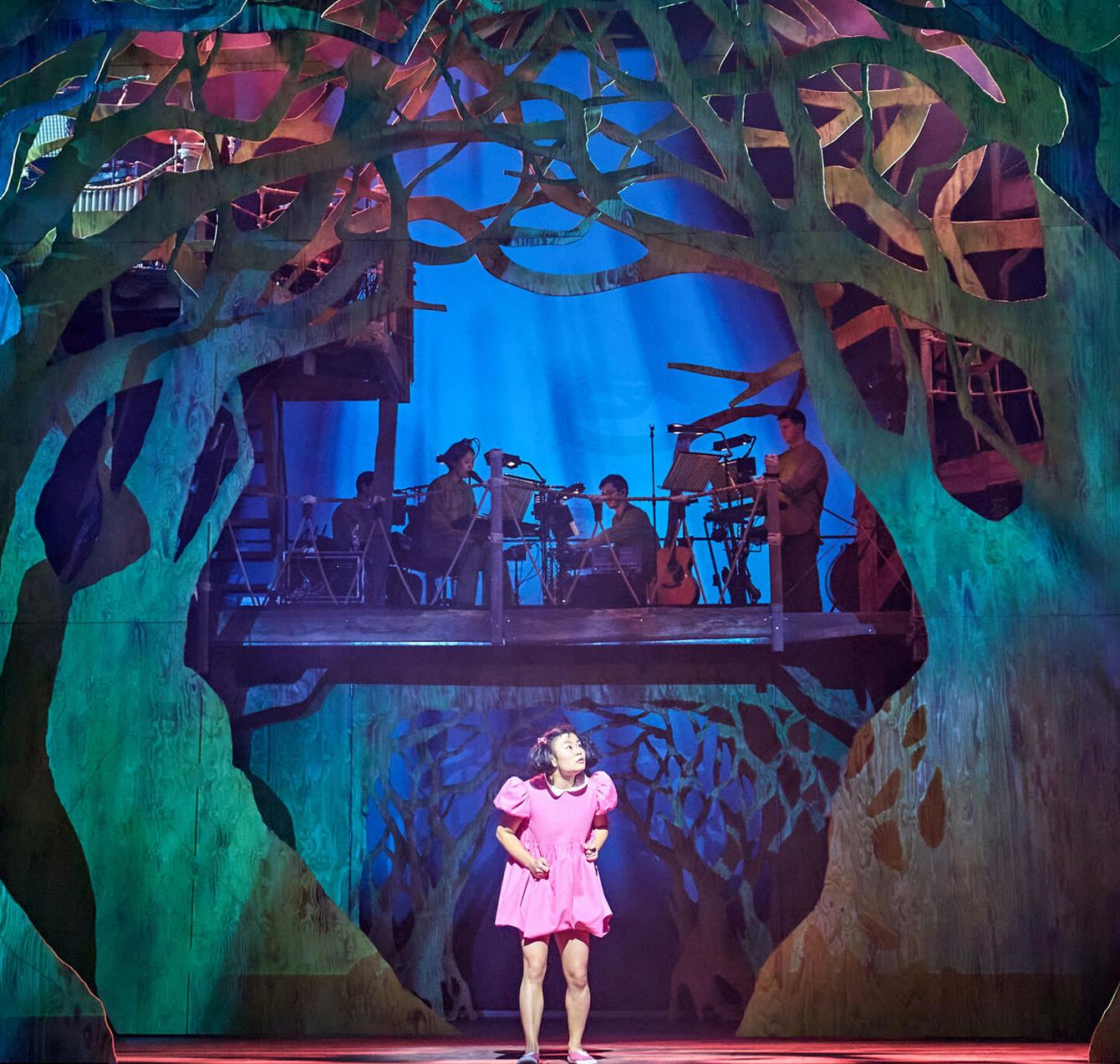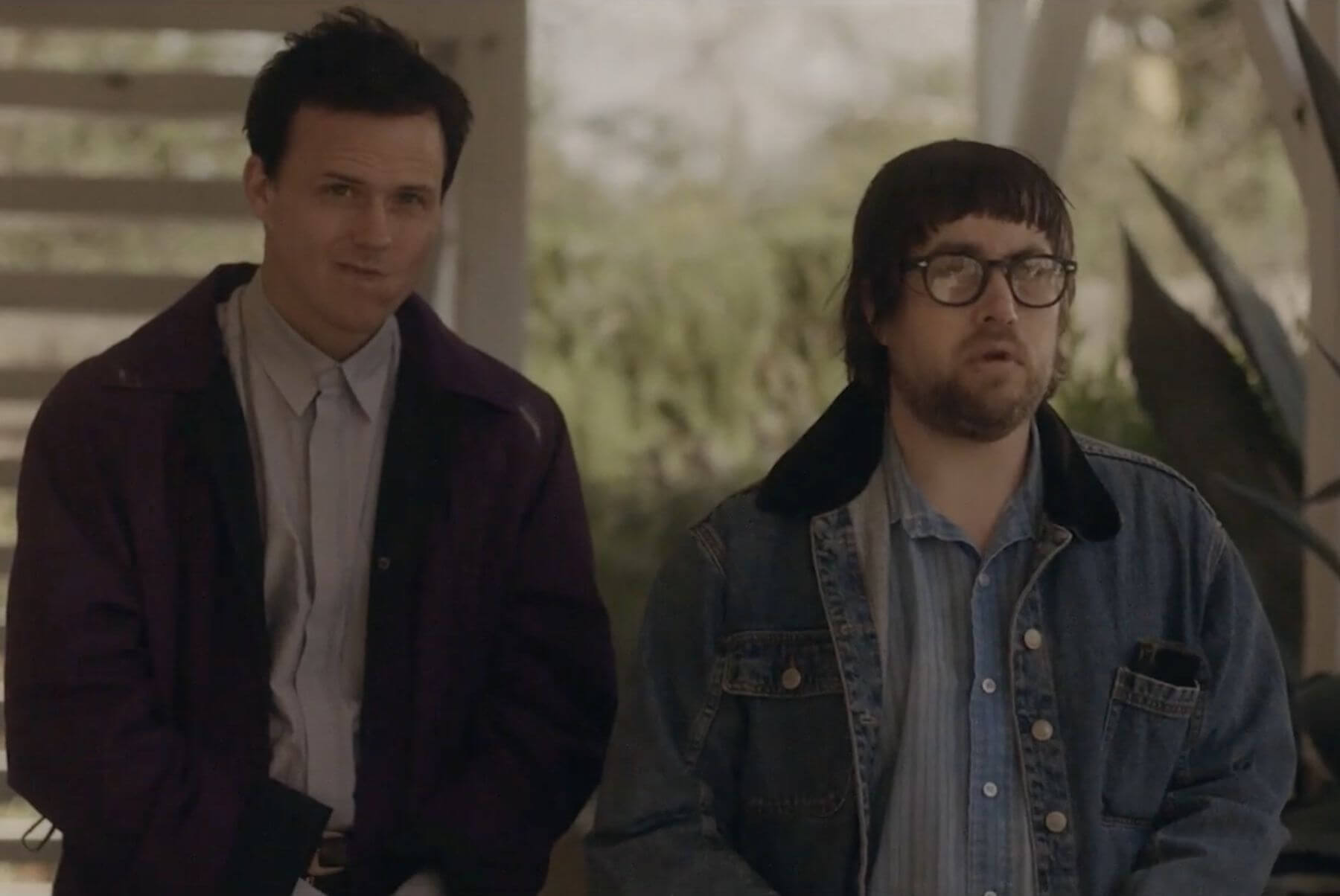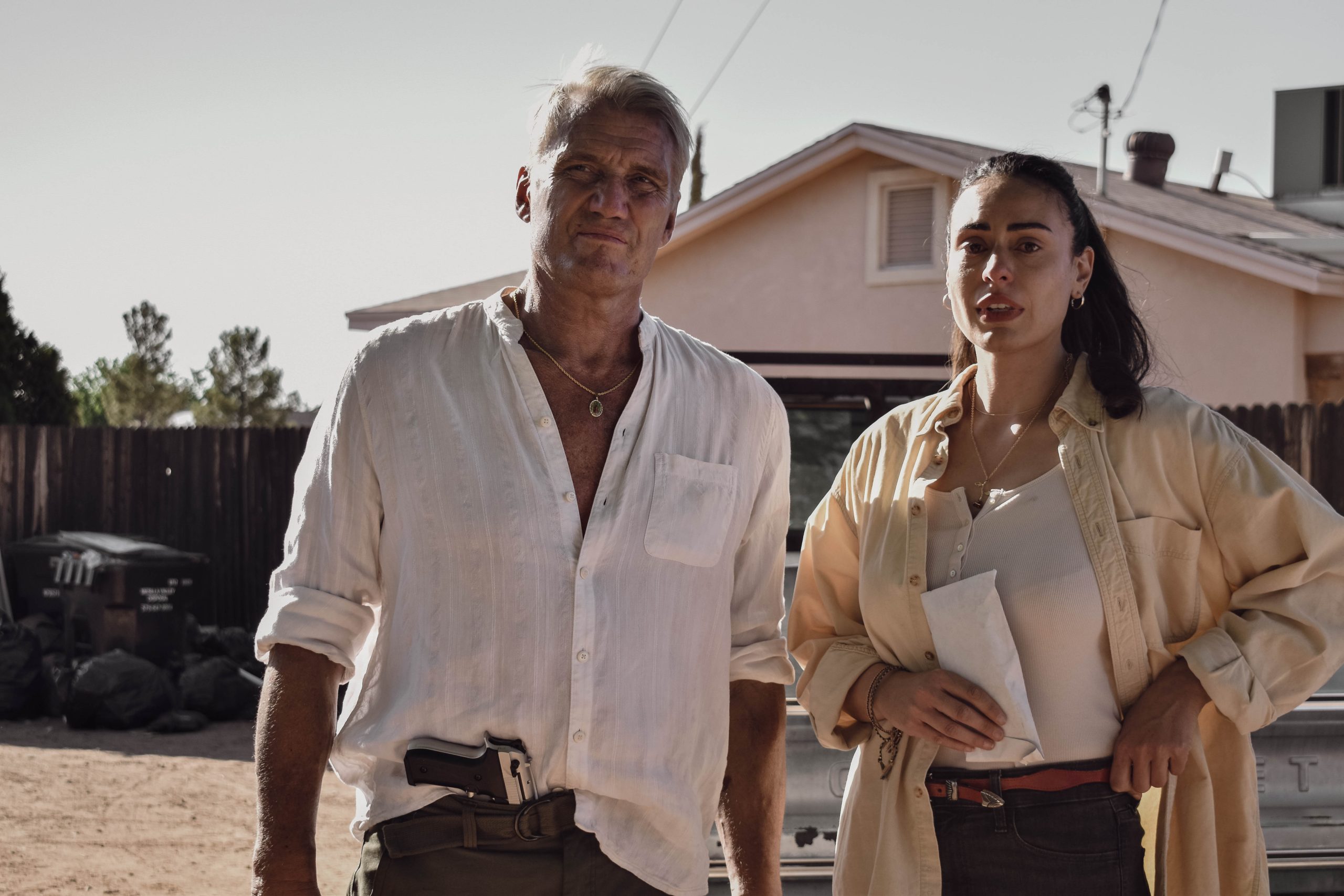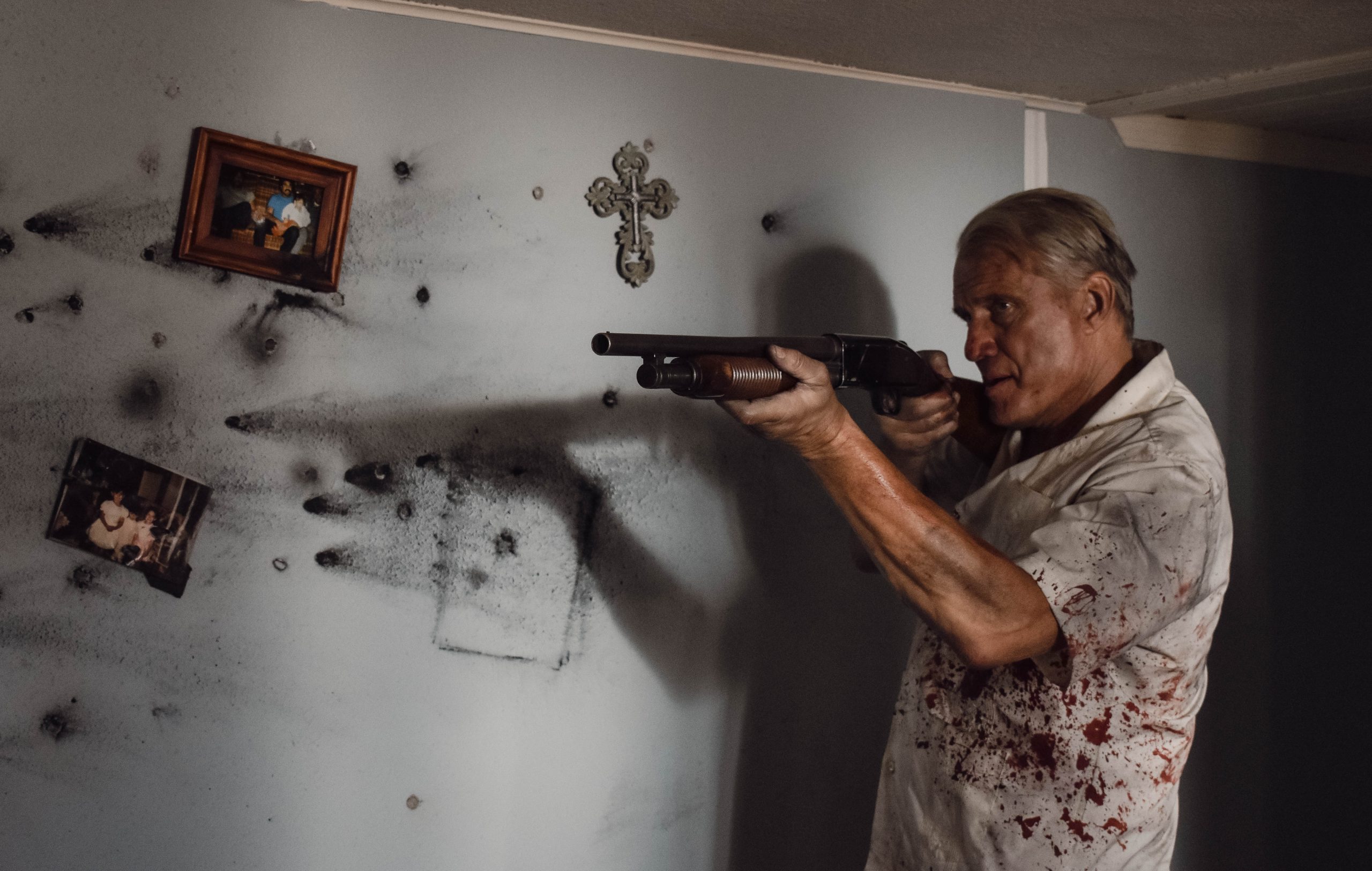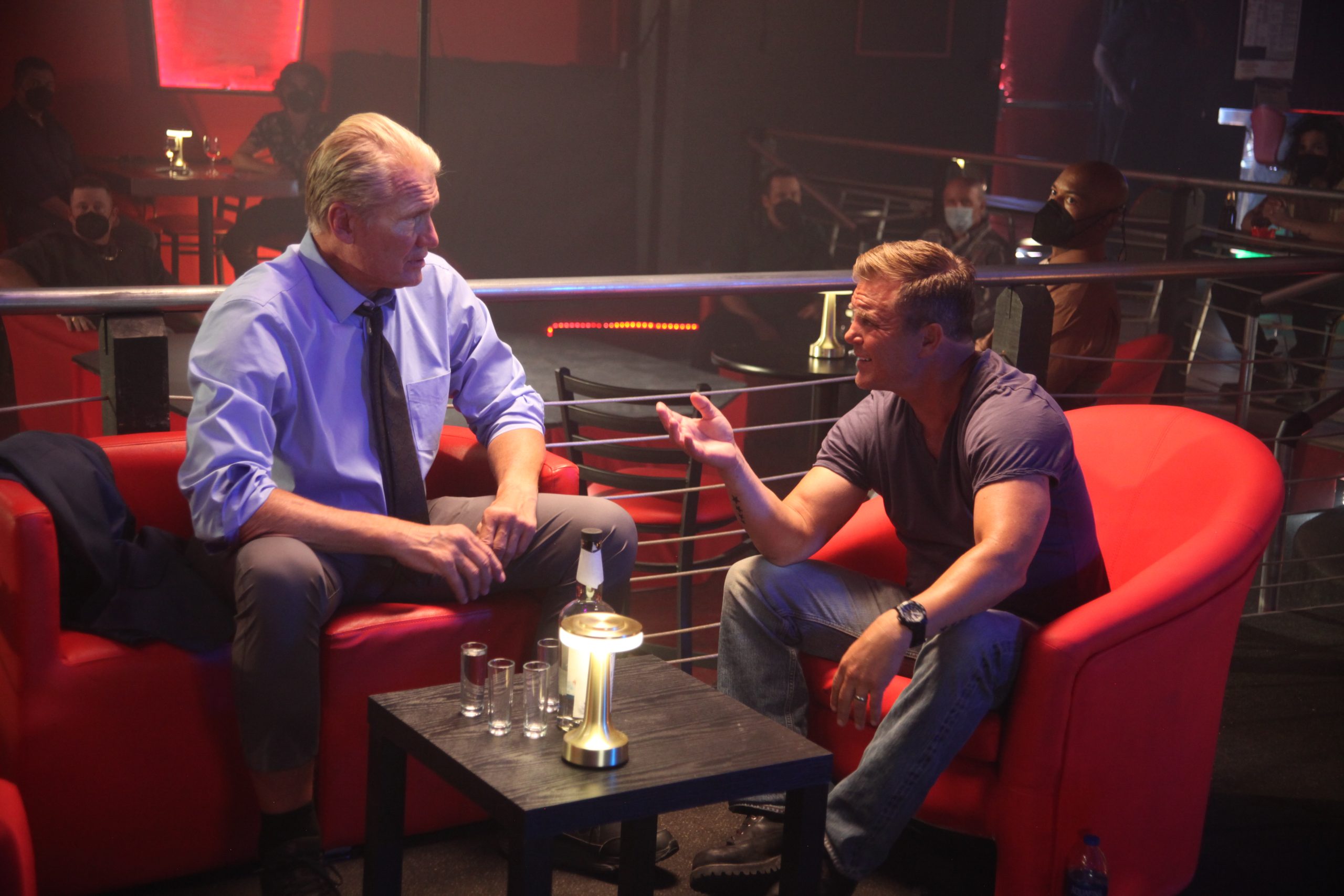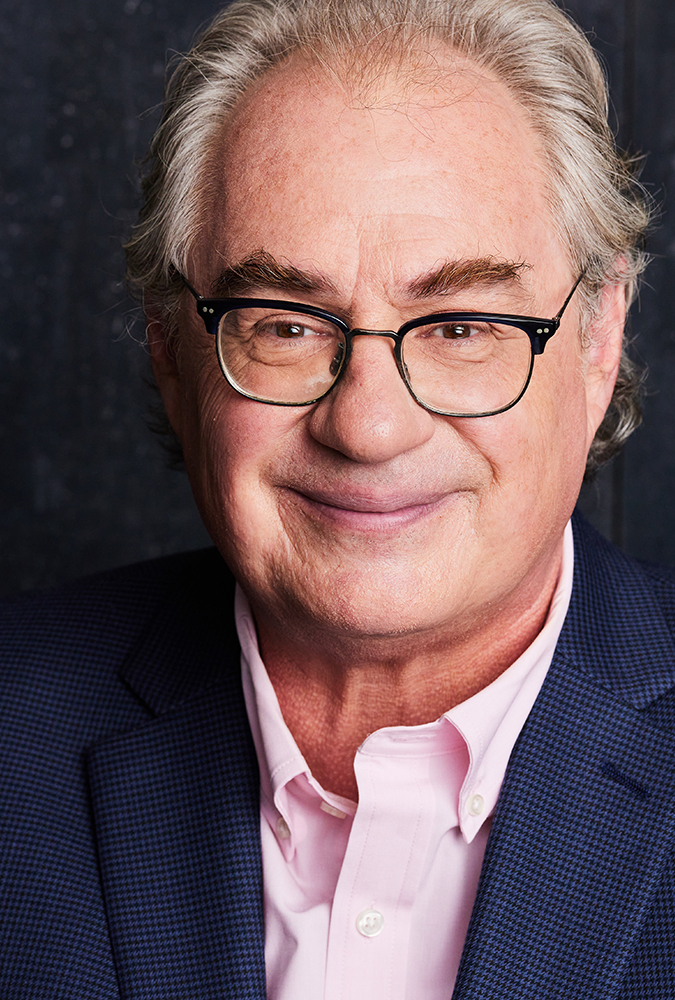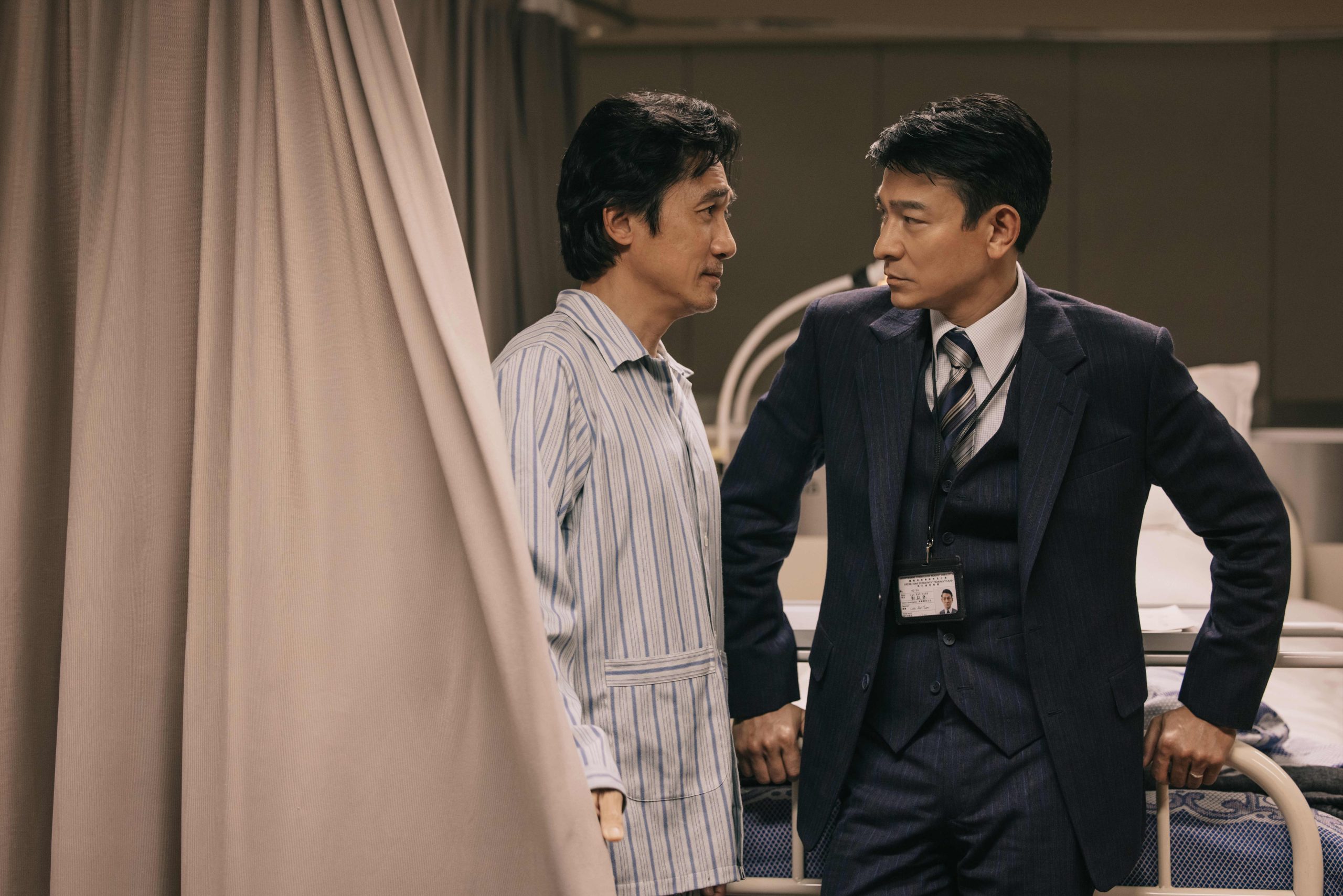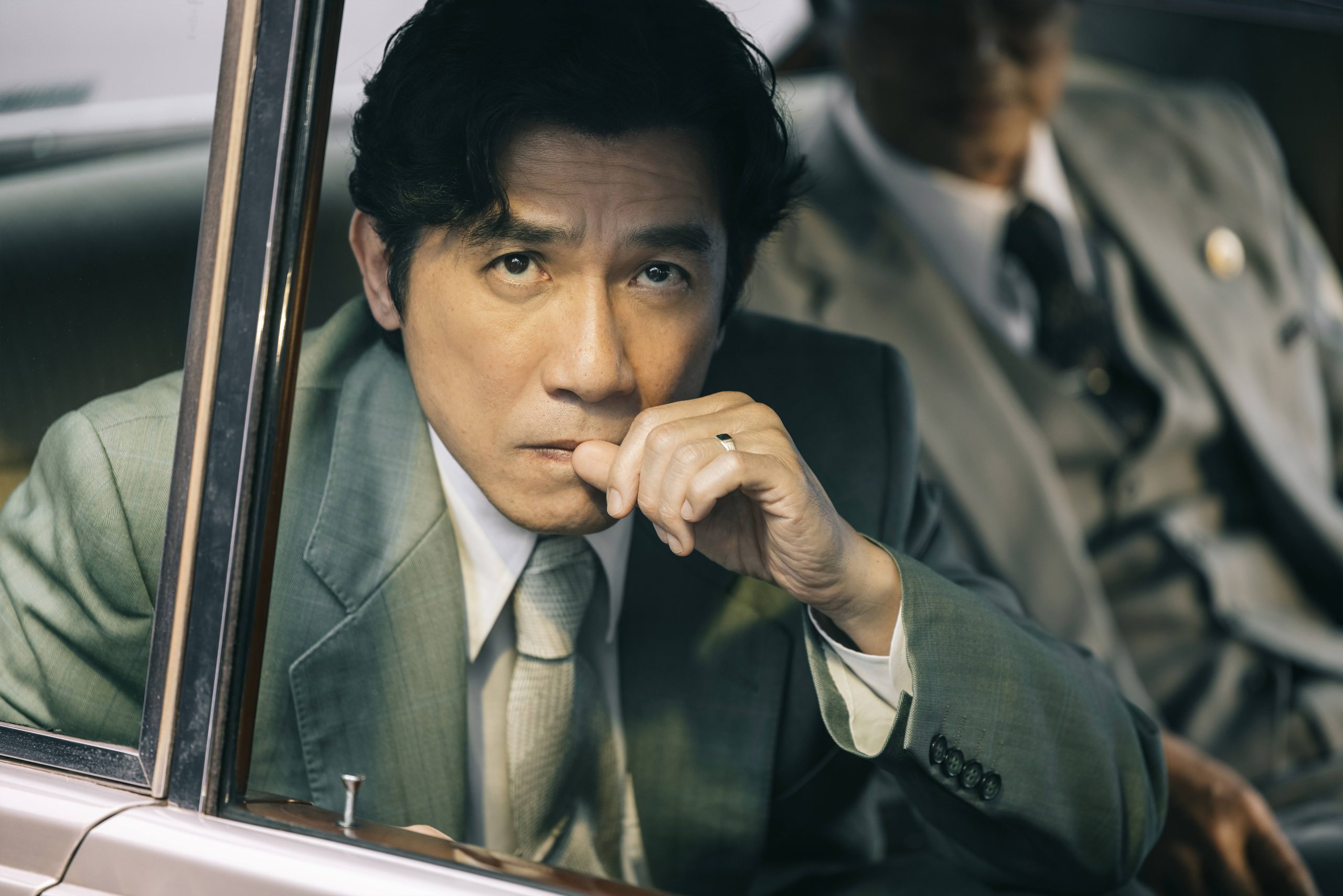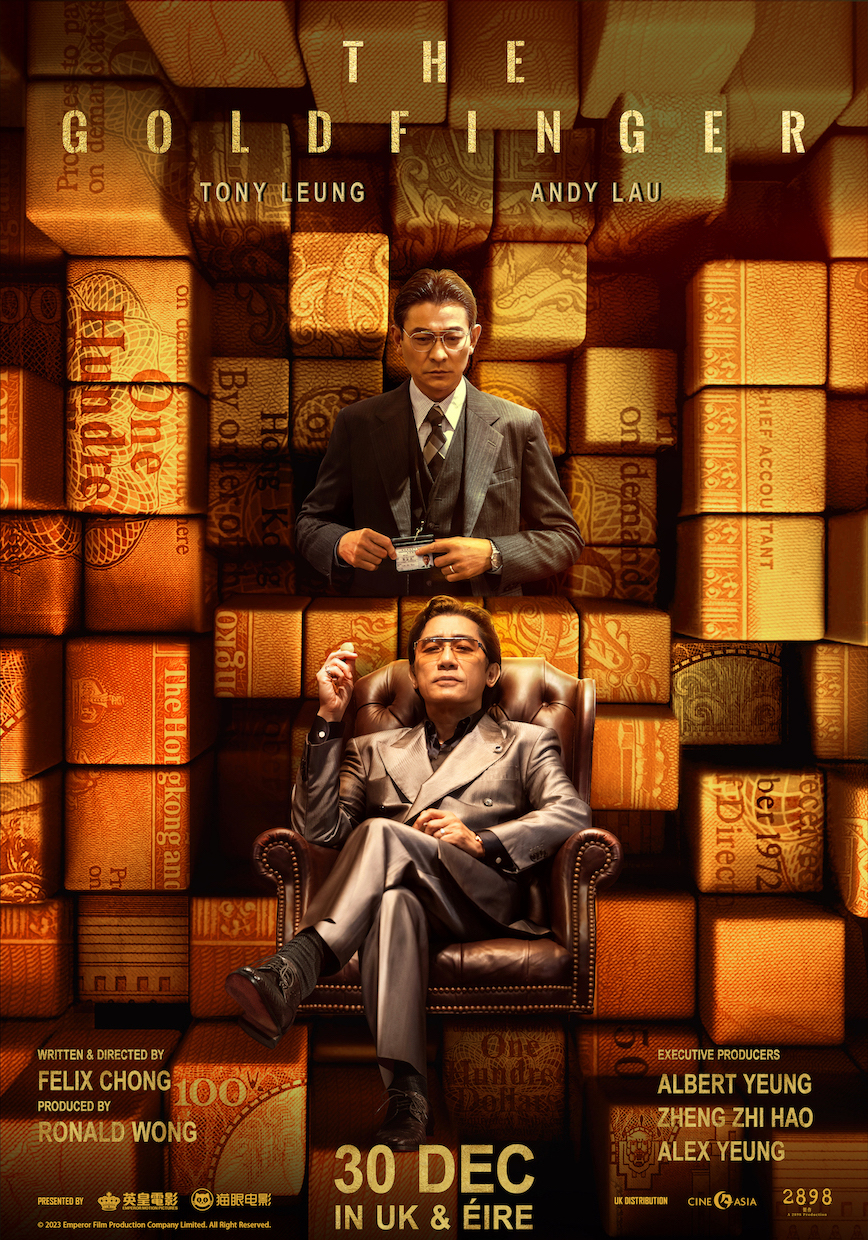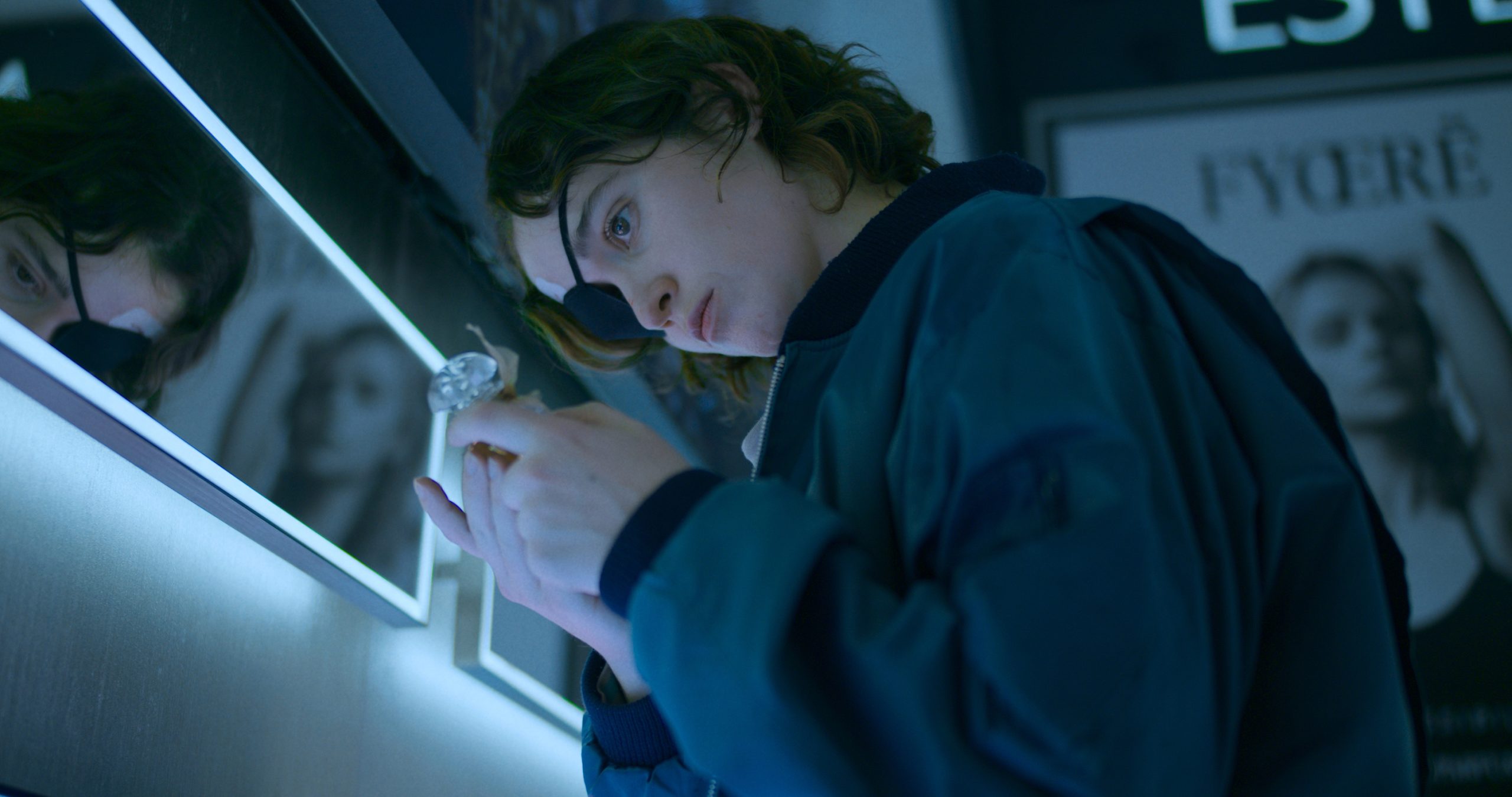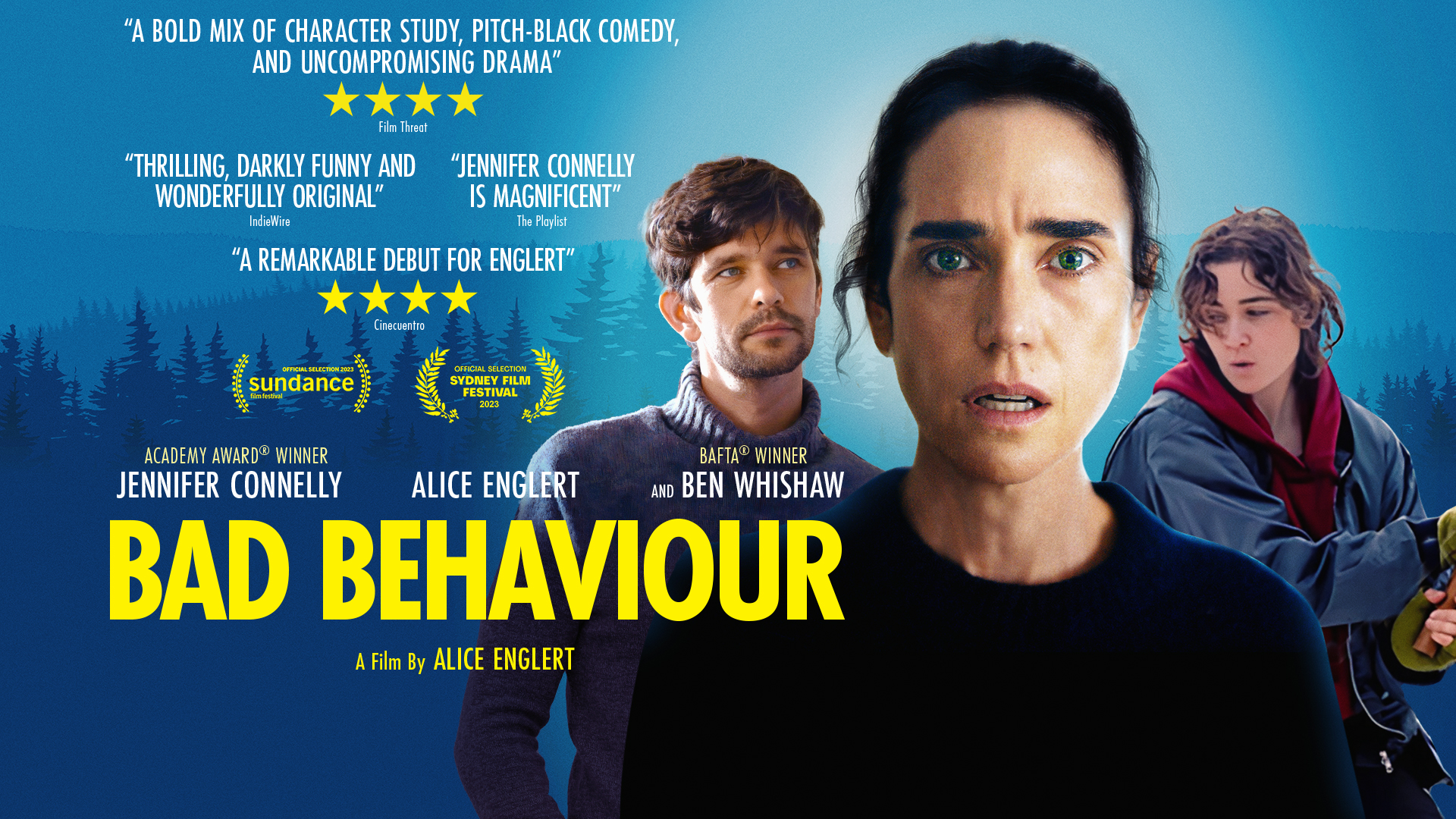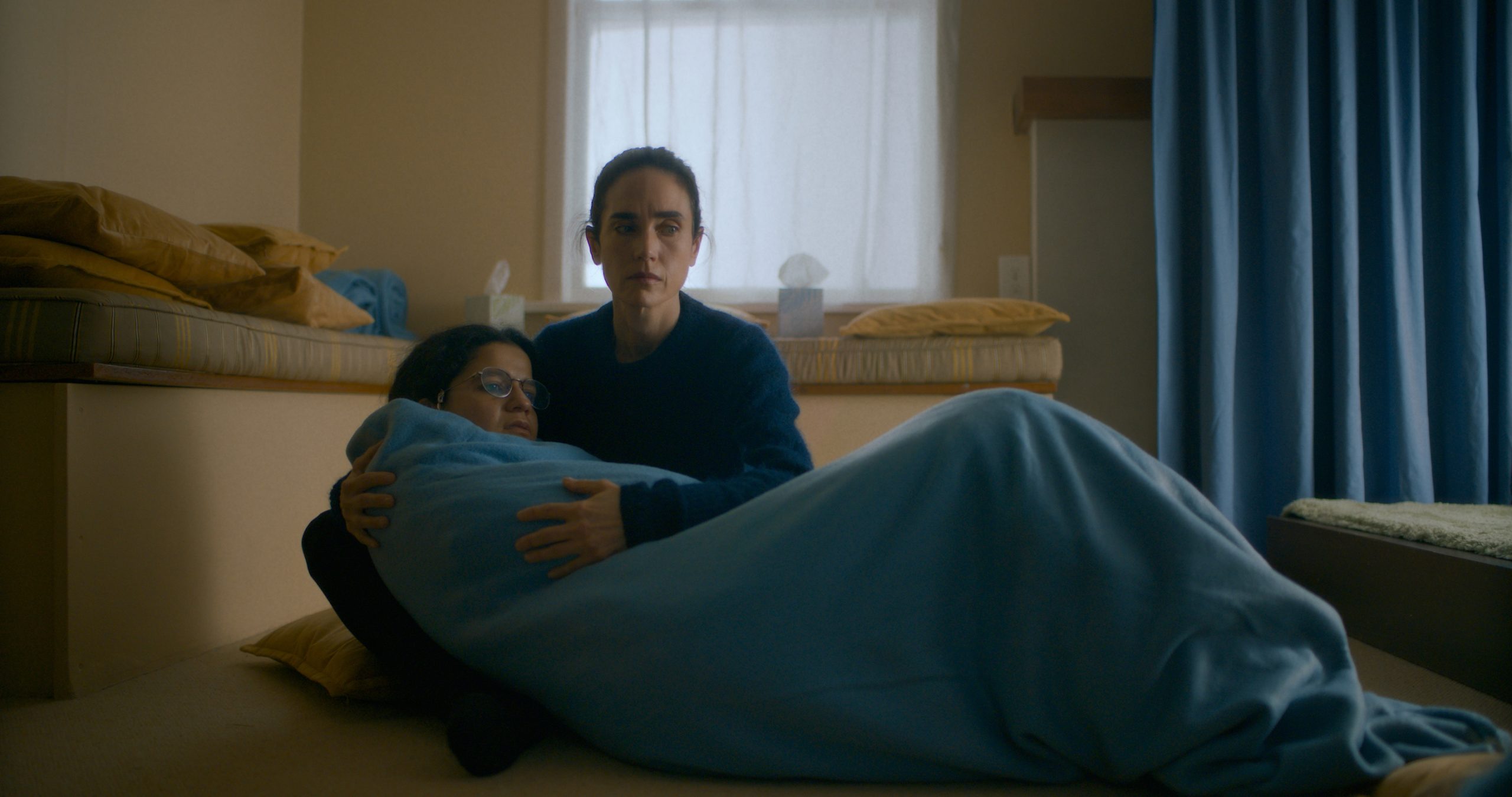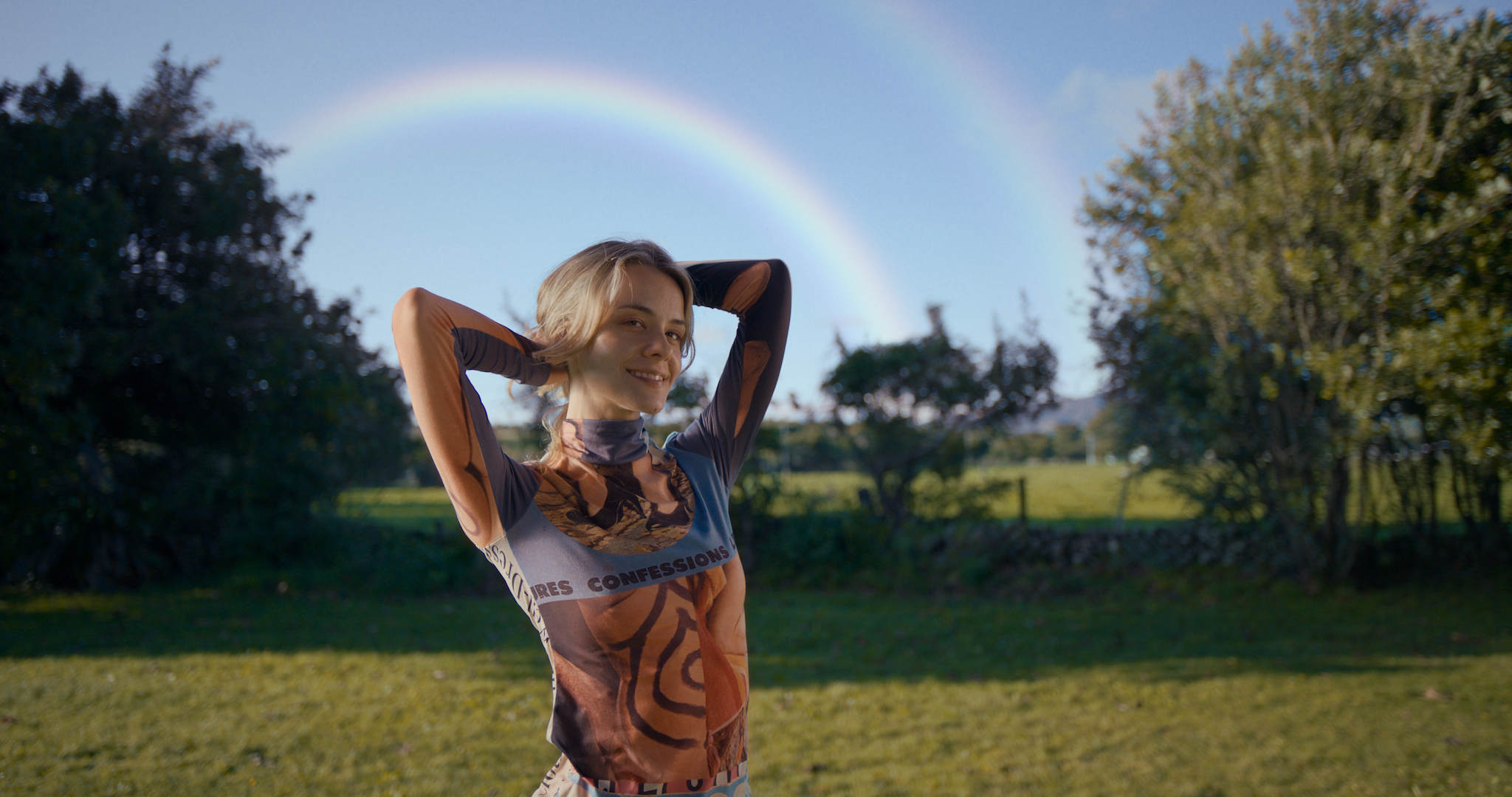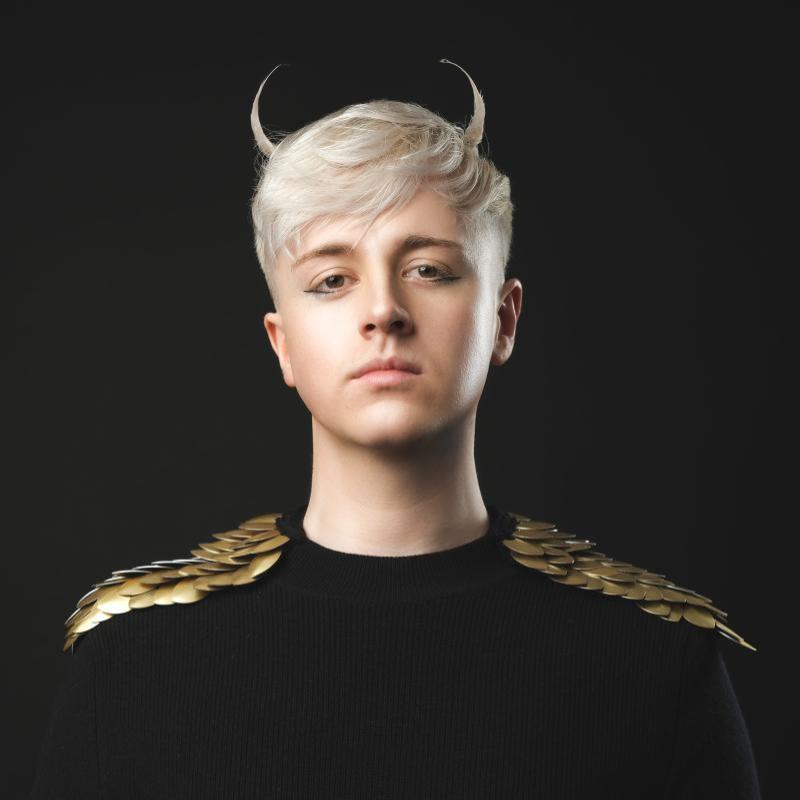John Billingsley is best known for his portrayal of Phlox: Star Trek Enterprise’s eccentric, gregarious doctor. Outside of Trek he’s a well-established character actor, having appeared on everything from 24 to Pam and Tommy. But alongside acting, Billingsley devotes a lot of time to charity, and is the organiser and host of Trek Talks – an annual online Star Trek telethon. Now in its third year, this year’s Trek Talks takes place on Saturday January 13th, and boasts an impressive lineup of guests including Jonathan Frakes, Terry Matalas, Brent Spiner and Tawny Newsome. It’s free to stream on YouTube, and raising money for the Hollywood Food Coalition, an LA-based charity that Billingsley has been involved with for a number of years. STARBURST recently spoke to him about everything from his charity work, to Enterprise, filming naked orgies, and Kyle MacLachlan’s nipples…
STARBURST: Hi John. Thanks for taking the time to speak with us. What can people expect from this year’s Trek Talks?
John Billingsley: Well, it’s going to be a great show. It’s eight hours long. It’s on January 13th, from 10 in the morning to 6 in the evening, Pacific Time. I don’t know how that translates to the various parts of Great Britain [Note: It’s 6pm until 2am]. Every two-hour block contains a multitude of different panels, different interviews. We’ve got a one-hour-long interview with people from Picard Season 3, including Jonathan [Frakes], Brent [Spiner], Ashley Chestnut, Todd Stashwick, and a few others. Jonathan del Arco is going to moderate.
We’ve got a great panel that the SyFy Sistas are conducting with Michelle Hurd and a variety of other wonderful African American women who played instrumental roles in the history of Star Trek. It’s sort of a homage to Nichelle Nichols on Martin Luther King weekend. We’ve got a female scientists panel. We’ve got a panel devoted to looking at the episode Tuvix with most of the male cast from Voyager and one of the writers. We’ve also got standalones with a number of other guests, including Nana Visitor, and a couple that we haven’t yet formally announced yet because they haven’t quite dotted the I’s and cross the T’s. So, it’ll be a really fun day.
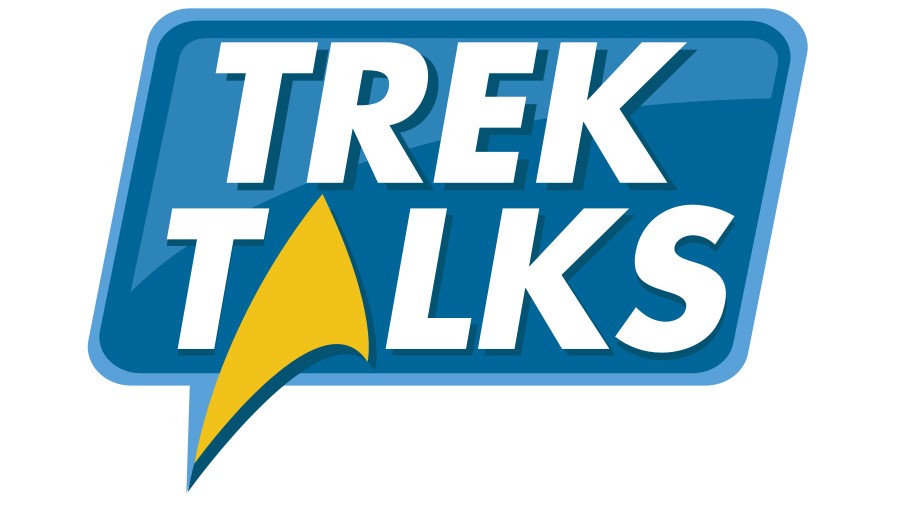
Can you tell us a little bit about the Hollywood Food Coalition, and how you became involved with them?
I know right now, folks in England are experiencing similar problems in this tricky economy. There is a lot of hunger in America and a lot of homelessness in America. We’re an organisation that’s devoted to attempting to address issues of hunger and poverty. And in essence, what we’re really wanting to do is to use food as a medium to help sew up a tattered social safety net. We provide around three million pounds of food a year for about 150 other not-for-profits to buttress and augment their meal programmes. Additionally, we serve a hot meal to all comers seven nights a week in our own home kitchen. And we also make sure that the people who come to us are connected in turn to some of the organisations that we’re supplying food to.
We want to kind of create a virtuous circle amongst the social service community in Los Angeles. And lastly, we work with organisations that are interested in doing what we’re interested in doing, which is seeing if there are big-picture solutions to hunger that can only be addressed collectively. For instance, food is available that we don’t have enough joint refrigeration capacity, storage capacity, transportation capacity for, etc. How do we work together to solve some of those problems?
How did you first become involved with them?
Well, the long version of the story is that after Trump won, I think I, like a lot of people in my country – and I imagine many people feel similarly, after many years of the Conservative Party – wanted to do something that would respond on a personal level, to what I thought was a deep tragedy. I wanted to feel like I was not retreating out of fear and rage but moving forward out of compassion and care.
So, I looked around at some at some length for a place that I could get myself to, and I walked in the door of this great joint – my wife actually led the way – and started making fruit salads, washing dishes, just doing quotidian stuff. But I realised it was a great organisation that maybe needed a little bit more of a sense of communitarianism. We are a coalition. And I didn’t think all the folks who were interested in doing the work were getting together and talking about the future. I helped organise the board, helped organise a little bit more structure, and helped organise a bit more of a drive towards expanding our capacity to help by rescuing and sharing more food.
I think in part because I was a theatre actor for many years and I didn’t have a buck, that the idea of being hungry and not knowing where your next meal is going to come from actually has a certain kind of personal resonance.
Is that why you what you think you chose that particular charity over others?
I’m a great believer that we all need to ask ourselves: “What is my voluntaristic bliss? Where am I going to be most happy?” And it varies wildly. Some people I think are going to be happiest teaching a kid how to read, or maybe volunteering in a prison or cleaning up the beaches.
I don’t know why, but for me there was always something very appealing about working with an organisation that provides direct services to people in need. I used to be on the board of an organisation called the AIDS Service Centre. We were kind of a one-stop shopping centre for people who had HIV AIDS-related issues. That kind of immediate gratification from feeling like somebody’s important daily needs are being provided for has always had a lot of resonance for me.
Again, I think, in part it’s because for many, many years, I made under $10,000 a year. I lived on food stamps, I was on unemployment insurance, I always had to scrounge a bit, not only my next gig, but my next paycheck, and my next rent check consequently. I had some good fortune later in life, but there’s been too many years in my life when I was, not hungry, but concerned about what was going to happen for me to have forgotten.
Do you do much other charity work? I know you’re involved with PanCAN as well, aren’t you?
My mother passed away from pancreatic cancer when she was 70. From diagnosis to death was two months. I found out that Kitty Swink – Armin Shimerman’s wife – and Jonathan Frakes were actually working with the wonderful, wonderful group Pancreatic Cancer Action Network. They organised a team to walk and raise money, which Kitty has been doing for a number of years, and they asked me if I would join, and I said “absolutely.” Right now, that’s a little more on the backburner. For me. I kind of have a two-step approach; first there’s the intense preparation for Trek Talks, and once that ends, I do a little bit more of a shuffling of the pots and I lean forward into PanCAN a bit more, although I’m also on the board of the Hollywood Food Coalition. And I chair the development committee, so all year long I’m involved in helping to raise money and awareness of it.
Would you say that charity is now more your focus than acting?
Yeah. I still love to act and I’m always happy to act. But in all candour, since Trump won, I’ve wanted to do more charitable work, but it wasn’t as if it was a brand-new thing. But I definitely moved the focus. I told my agents that I would like to be offer only [where established actors accept offers for roles but won’t audition for parts] and put more time into charitable work. You then find out right away that when you say offer only, you aren’t going to get the offers, and it’s like, “okay, well, I found out I’m not an offer only actor!” I’ve subsequently rescinded that and said, “alright, I’m back auditioning.” I don’t want to send any energy out to the universe, suggesting that I’m uninterested in acting. But once folks in the industry begin to feel you’ve receded, they’re happy to let you recede. And I’m not a stage actor anymore. I haven’t done any stage acting in a long time. That used to be something that you can keep percolating. And that is something I’ve had to let go of.
Moving onto Enterprise, Phlox was a very different type of Star Trek character. The closest to him previously was probably Voyager’s Neelix, who proved quite divisive. Did you have any concerns about how you’d be received by fans?
I wasn’t particularly conversant with Star Trek history. I’d watched the original shows as a kid, but when I got this gig, I certainly had my finger on the pulse of popular culture enough to know that it was life-changing. But I didn’t know what Phlox was, or how he was related to all of the other species that had been introduced from Next Gen on through to Voyager. It was all Greek to me. I’d never heard of Neelix, I’d never watched Voyager. I did ask a pal of mine to give me a crash course in Star Trek history. He sat me down and I watched a few episodes of each show, so I didn’t begin work on Enterprise with quite as much ignorance as when I got the part.
But how you’re perceived is outside of your control. All you can do is try and play what’s on the page. I mean, he was clearly a buoyant character with his trademark optimism, but also there’s just the sense that this is a guy who leaves his home planet. He’s well into advanced middle age, and I would imagine he’s got grown kids. He’s lived a good chunk of his life. And in my opinion, he’s going off rather merrily on what is probably a suicide mission – I mean, Earthlings for God’s sake, taking their first ship out! And he says, “yeah, I’ll come along, what the hell! What’s the worst that could happen? I die.” To me, he always was kind of like a Buddhist, he had a relaxed sense of having lived a life, one now let’s go of fear of death, and then moves on to the next stage.
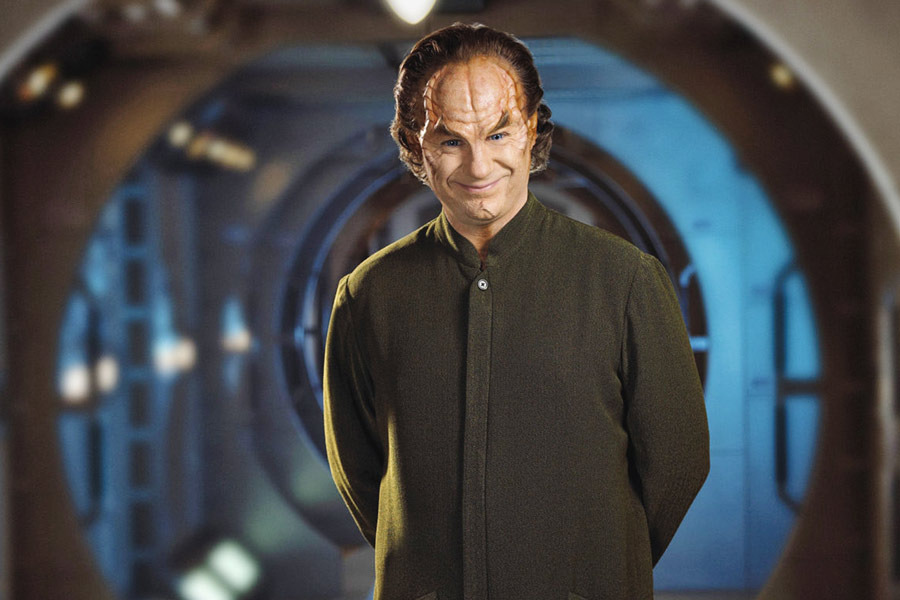
Star Trek Enterprise (2001-2005)
Looking back on the series now, how do you think it holds up?
I haven’t watched it much. Since it found a new audience on Netflix, I certainly have gotten a sense from people that maybe some of the initial knee-jerk negativity had as much to do with the fact that there was a certain amount of Star Trek fatigue when it premiered in 2001. I think now that has been looked at outside of time, I think there are people who might appreciate what it did well, more than was true at the time. That said, I always had my issues too. In my opinion, what I would have liked to see them do more with the show is really play up the idea that as the first Earth ship, we had our heads up our ass. We didn’t know what the fuck was coming next. The transporter terrified us. The weapons malfunctioned. In my opinion, if we’d gone more for almost a Robert Altman sense of disarray, overlapping dialogue and “what the hell was that?” Not that we would have been in full panic mode all the time, but there might have been a little bit more of a sense of really getting our feet wet. I think they started with that idea, but it quickly became a little bit more “your daddy’s Star Trek.”
Most fans seem to feel that it found its footing in Season Three. I have some issues politically with what the Xindi arc meant at a time when we were thinking about invading Iraq. I wasn’t too crazy about the idea that these lizards attacked the Earth, and anything goes to beat the bastards. That wasn’t necessarily the easiest message for me to swallow. On the other hand, it definitely provided a tension and a sense of urgency that I think the show had been missing. A lot of my favourite episodes fall within the arc of Season Three, if only because even if they didn’t have anything to do with the Xindi, there was a sense of tension that was lacking for a while on the show.
People forget, but Enterprise debuted three weeks after 9/11. I’ve always wondered, do you think part of the show’s negative reception was because the optimistic sci-fi tone was out of touch with public mood? I think Season Three reflected more of what was going on in America at the time.
Possibly, although I think one tends to overstate that. I mean, our culture is vast, God knows. And we have so many different influences, even at the time you could have found any number of shows on television that didn’t have to bow in the direction of 9/11, that had their own spirit and their own sensibility.
I think for me, it was more about the fact that because Rick [Berman] and Brannon [Braga] were rushed into production, they didn’t really have a fully fleshed out Bible for what the show wanted to do and what it wanted to be. There is a story that I tell which doubtless people have heard 1,000 times. But nonetheless, it is the story that to me kind of encapsulated what I think one of the issues was. Early on, there was a script, [for the episode Strange New World] and the transporter, which we tried not to use, did indeed malfunction. In the original draft, which was not filmed, the crewman comes back from that planet’s surface and his head is where his ass should be. By the time it got through all the various drafts, what we ended up filming was that the guy comes back from the planet surface, and there’s a twig sticking out of his ear. I thought, “there you go, that’s the opportunity missed.”
The show ended after four seasons, and while respectable, it was less than its predecessors. Why do you think it happened to end early, and when did you first get a sense that the writing was on the wall?
I think there was a certain amount of Star Trek fatigue. I think maybe it wasn’t quite a bold enough departure to have the same kind of version of Star Trek that audiences have been watching for a number of years. But some of it was also just the reality of network politics. We were on UPN in the States, which was a dying network. Nobody in Hollywood wanted to pitch an idea for a show to UPN. Nobody wanted to be on UPN, everybody pretty much knew its days were numbered. It becomes a self-fulfilling prophecy. They don’t have anything else on it, which means that when they go out to the various small marketplaces, Austin, Texas or Bumfuck, Iowa and they’re saying, “hey, pick up UPN,” the affiliate stations say, “okay, but we get to choose which shows we air and when we air them.” So frequently, Enterprise was not actually aired.
As a for instance, in San Antonio we went to a convention, and nobody showed up. We found it was because in the San Antonio market, we were always pre-empted for high school football games on Friday nights. So, there were a lot of factors that came into play. Not only did we not necessarily get a huge response from the audience, but then the show was impossible to find frequently for those people who did want to watch it. UPN was only kept alive for its last few seasons by our presence. Oddly, not only did we not make it for more than four years, but we held a network in place that was dying. And with us, it went.
Some of the Star Trek casts, particularly The Next Generation, are very close to each other. Are the Enterprise cast similar?
To a certain extent. I think what keeps a lot of the casts close is the fact that we see each other at conventions, and one of the nice, wonderful perks of Star Trek is – aside from the money – if you’re sociable, the idea that you get to see people you love on a regular basis, not only other actors, but fans as well. There are some folks from Enterprise who don’t choose to participate in that world: Jolene [Blalock], and Scott [Bakula] still has a very successful career, so he’s not around very much. Connor [Trinneer], Dominic [Keating] and Anthony [Montgomery], and to a lesser extent, Linda [Park], we see each other a fair amount, and I love them all. We’re probably not as close as some of the other casts, because some of the other casts have been doing it longer. The Next Gen cast has been out on the road together for years.
But what is interesting is that you become close to people who weren’t in your cast. So, Bob Picardo is a good friend. Nana Visitor is a very good friend. There are a number of people that I love from the other iterations. I haven’t really gotten to know folks from the current iterations yet. They’re in production, so they’re not as often at the various conventions. And I don’t tend to go to as many conventions as I used to either. But it takes a certain kind of personality, I think, not just to be on Star Trek – for actors it’s a gig – but to want to participate in the ongoing of Star Trek the rest of your life. I think the folks who want to be close self-select themselves into that circle.
Talking about the new shows, do you keep up with any of them at all?
Billingsley: To a certain extent. I don’t really watch a ton of television. I wanted to be a writer, so my first love is and always has been reading. It’s not that I don’t like TV, it’s just that there’s only so many hours in the day, so I’m sparing about TV. I’ve watched a few episodes of the various iterations of the show, just so I kind of know what I’m talking about, but I’m not up to date by any means. And in fact, I don’t think I’m up to date about anything. The last show I think I watched in its entirety was probably Better Call Saul. No, Succession, I watched Succession.
My wife and I will pick a show, we’ll watch it from beginning to end, it’ll take us months. It means one night a week, maybe two, we’ll watch an hour of television. And that’s about as much as I give myself. And then this year my wife [actress Bonita Friedericy] is a nominator for the SAG Awards, so we’re watching more movies than we ever do. And it’s fun, but I’m usually looking forward to getting back to my book.
I’m assuming you’d be open to appearing on any of the new shows if they ask?
Sure. Hell yeah. I find myself having this conversation a lot. I’d be delighted to return to any of the iterations of Star Trek, although I’m beginning to think because this has come up in a variety of interviews that the people who create these shows are going “shut up already!” But if you happen to be reading this, oh writers of Strange New Worlds, I’m around!
You’ve been suggesting recently that Phlox could show up on Strange New Worlds as a successful author of sex manuals?
People ask what do I think Phlox is doing later in life? I don’t know, can’t the guy retire? If it was up to me, he’d probably be sipping Mai Tais on Risa. But, you know, somebody has written my story already, so I suppose if you’re really deep diving, you can find out what happened to Dr. Phlox, and he’s apparently been doing all sorts of amazing shit. He runs a little bookstore somewhere, he goes home, he’s got his wives, he’s got a Beagle. He’s decided Beagles are not such a bad idea. The one thing he took away from the Enterprise, they’re kind of cute.
You’ve done a lot of guest spots on classic shows like The West Wing, X-Files, 24, and Twin Peaks. Have you got a particular favourite you’ve done over the years?
I did a couple of episodes of Cold Case where I played a really horrible serial killer. That was kind of fun. I’ve played a lot of horrible serial killers. Similarly, on NYPD Blue I was a cab driver who murdered his African American fares because he was in his dark heart a racist. That was pretty perverse. On Nip/Tuck I was a guy who felt he had an extraneous leg. And apparently this is a real condition people who feel that they are carrying the burden of an extra limb and want to self-amputate. That was that was kind of an interesting part. I liked being on Masters of Sex a few years back, I had kind of a fun part as a shrink. Recently, I enjoyed being on Pam and Tommy, where I played absolutely scabrous and scurrilous attorney for Penthouse Magazine. Everything has something fun to recommend it. But generally speaking, the life of a character actor, you go from show to show to show and occasionally you get lucky and get a TV series. But for the most part, it’s just for a couple of weeks, you’re getting to wear somebody else’s trousers and you try and have a good time doing it.
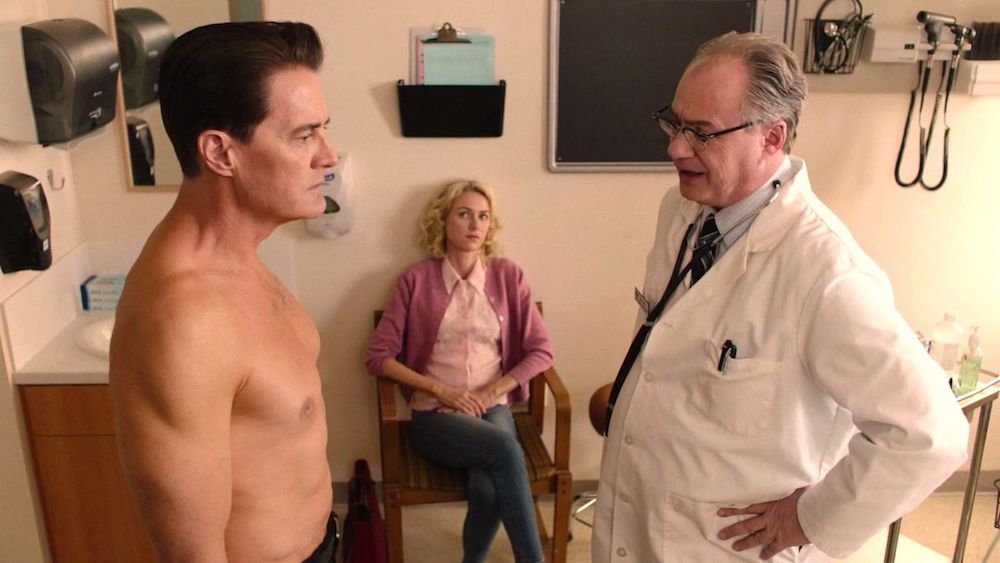
Twin Peaks: The Return (2017)
You did an episode of the new Twin Peaks. Were you there long enough to get to know David Lynch at all?
Billingsley: No – very, very short appearance.
Just the one scene…
One scene with Kyle, yeah. What did interest me is that David Lynch does not audition actors. You don’t come in and read scenes or prepare material. You’re just asked a question. And the question in this instance was “tell me something interesting you did today.” And I had given my cat an enema. I told the story. I never thought I’d give a cat an enema, that’s not a pleasant experience, I didn’t like it. Anyway, they cast me as a doctor. I told the cat, “As much as I didn’t want to give you an enema, I guess it paid off. I’m on Twin Peaks, thanks pal.” He didn’t take it in the spirit it was intended, he was more like, “fuck you!” It wasn’t a good role, but it did get me a part, and I have touched Kyle MacLachlan’s nipple.
After Enterprise, your biggest TV role was probably in True Blood. From what I know about your sense of humour, I imagine you really enjoyed yourself on that show?
No, I didn’t, it was miserable. It was a pretty small part, so I didn’t feel like I was part of it [Billingsley had a recurring role as the town’s coroner]. Much of the first season my role consisted of me saying “coming through,” as I was carrying a corpse. The second season, there was a season-long orgy, and Michelle Forbes was the villainess. She had us all in her thrall, and she fed off the erotic energy. So, the entire season was me basically having sex with a tree, having sex with a lamp post, having sex with a bar wench, anything that moved, I was down to fuck it. As was everybody else! But what this meant was that you were frequently naked, it was frequently cold out when you were doing the orgy scenes. It was actually a fairly miserable experience, plus I had to wear these gargantuan black contact lenses. So, you’re wandering round, you can’t see a fucking thing, there’s dust in your eyes, you’re freezing cold, the last thing in the world you actually feel is erotic!
In one instance, there was a woman who was playing a dirty dancer who I was dancing with. She was an extra, a perfectly nice lady, but she was bound and determined to reveal both breasts on camera because you get paid 50 bucks a breast. She was constantly trying to reveal both breasts, which would fuck up the shot, and you’d hear the director go “cut, just cover the left breast, we just want to see the right one.” Eventually I said to her “look, just show the one fucking breast, I’ll give you 50 bucks and let’s get on with this!”
My wife, when I would come home at night would ask me what I did, and I’d be “dirty danced with some lady, and I had to rub maraschino cherry juice on her tits. Another day at the office.” She was not having any of that. I kept telling her it’s a miserable experience, just you wait. And eventually she got an audition to be in a horror film for Rob Zombie [Lords of Salem], and she had to be a naked witch. And she wasn’t going to do it, and I said, “oh no, you’re doing it!” Vengeance is sweet. So, she auditioned, she got cast, Rob Zombie said, “the reason I cast you is because you look so pissed off that you have to be here.” Marriage is just basically 40 years of getting vengeance.
What’s next for you after Trek Talks?
I’m very invested in the future of this organisation [The Hollywood Food Coalition] so I spend a lot of time working for them, and I will continue to do so. Beyond that, workwise, we’ll see if anything comes up. Now that the strike is over, one is theoretically auditioning again. I’m not sure I’m on anyone’s list, and there’s not as much work once you’re over a certain age. I’m in my 60s, what work there is, you’re competing against people who are really good. It’s not like when you’re younger and you’re going up for a part and there’s a reasonably chance that half the people you’re auditioning with aren’t up to snuff. The missus and I will do some travelling, I’m going on the Trek cruise in February, monitoring the cats’ health against the possibility that I’ll have to give them enemas in the future, and reading.
Last question. Robert Picardo occasionally likes to say mean things about you. Have you got any rumours – true or otherwise – that you’d like to spread about him?
Where do I begin? I make fun of Bob because he makes fun of me, it’s clearly something we enjoy doing. I think we both secretly wish we could go back in time and become Jack Benny and Fred Allen, who had a notorious feud for years in the old radio days, which I think neither of us can unfortunately ever rival. But he is a deep love, and I really can’t say enough nice things about him, much as I hate to disappoint you. I wish I could spread some spurious rumour about him but no, he seems to be happy, healthy, and living the high life. He certainly continues to get all the work that I want!
He’s back on Star Trek in a few months [in the second season of Prodigy]…
I know! What I do know in my heart of hearts though is that when the toll is taken up yonder and they’re saying, “and now, will the sexiest doctors on Star Trek step forward,” I will be, along with Wilson [Cruz], at the head of the line, and Bob – the hologram – will be at the back.
I think that’s the perfect note to leave it on.
Yes, my pleasure.
You can stream TREK TALKS live on YouTube from 6pm GMT on Saturday January 13th. See the full line-up and donate to the Hollywood Food Coalition here. Following the live stream, the event will remain available to watch on YouTube.
